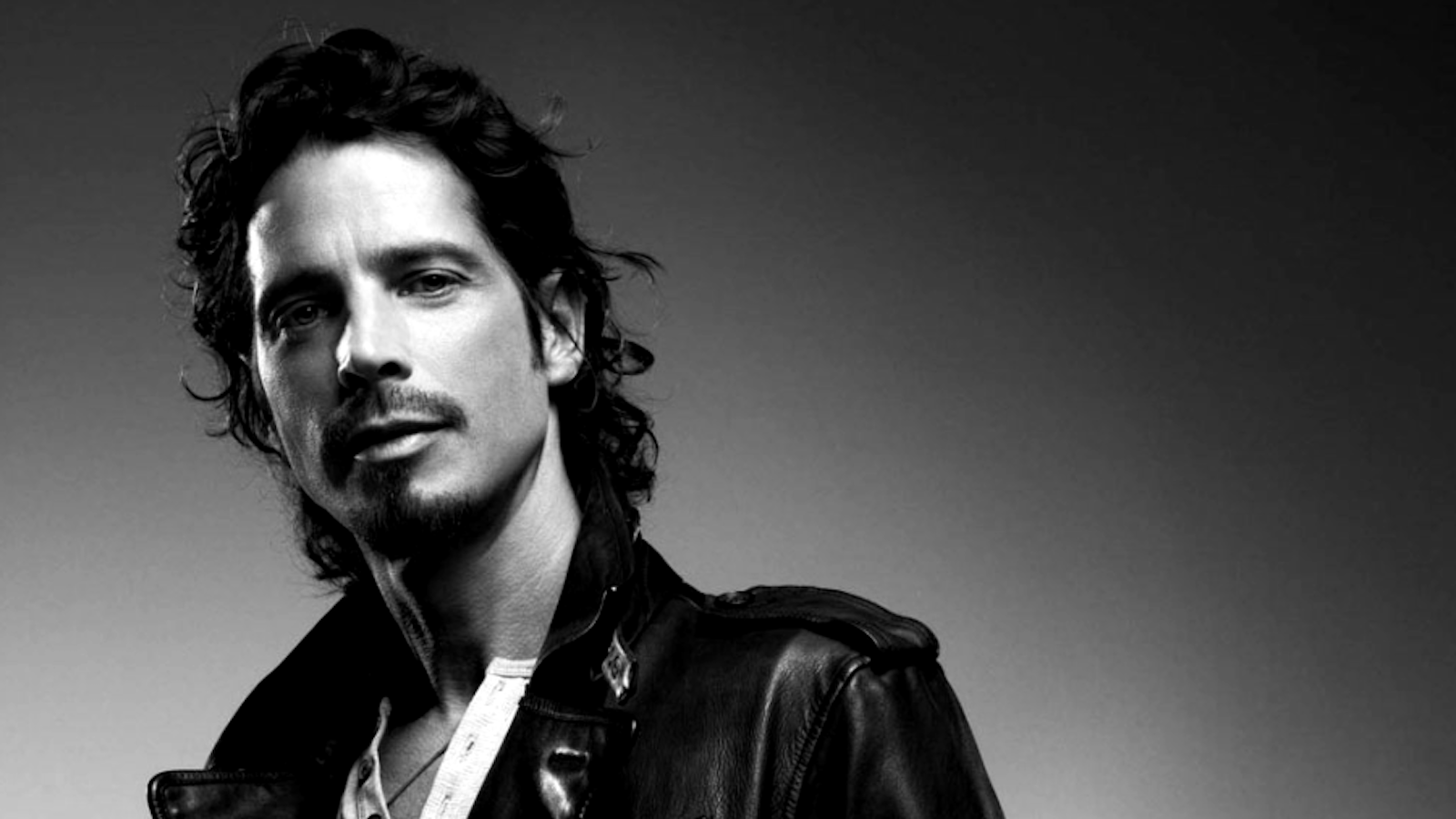Depression is the New AIDS
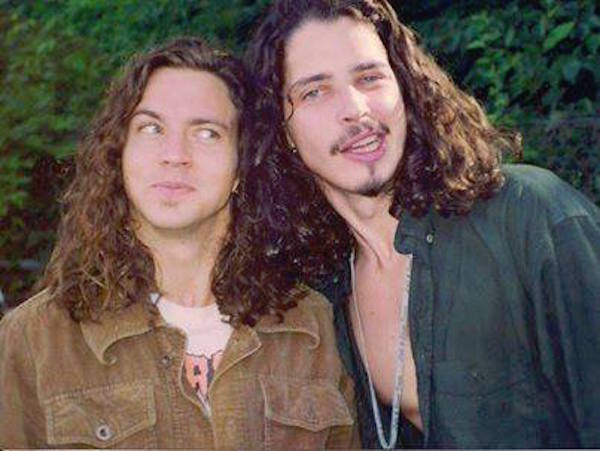 Thirsty for JUICE content? Quench your cravings on our Instagram, TikTok and WhatsApp
Thirsty for JUICE content? Quench your cravings on our Instagram, TikTok and WhatsApp
Has anyone ever told you that you’re a gloomy person? You’re not alone and you may be more than emo. Globally, more than 300 million people of all ages suffer from Depression. Ruminating on his personal lost and Chris Cornell’s recent suicide, JUICE Editorial Director, Ben Liew, shares his insights on the unseen epidemic and how we could all help to wash away the rain…
It’s never been easy to talk about suicide but I’d rather address this than write a glorified nostalgia piece.
Over the past week, I’ve seen numerous articles by music journalists, fellow rockstars, and close friends and family members of Chris Cornell, on his death. I’ve also seen a few friends of mine pour their hearts out on social media, just like any fan would. This was Kurt Cobain all over again.
Except it wasn’t. There was no grunge soundtrack, no plaid shirts, no foretelling signs.
We all like to believe in the myth of the tortured artist, I myself do. Somehow, it gives more meaning to the lyrics. But I don’t believe anyone who has killed themselves (save for Judas Iscariot and Hitler) wanted to.

It was just a couple of days after New Year’s Day when we heard the news of my beloved brother-in-law’s passing. My wife and I were on vacation, I still struggle with the guilt of taking a break from my job to travel, because of this we weren’t around to check on him.
My brother-in-law had been suffering from Depression for a decade. He had to take monthly medication. Despite his mental condition, he had a job as a systems engineer, later on as a GrabCar and Uber driver as those jobs were more lepak compared to his previous one, but he always pulled it together at the end of the day. He was like any other functional member of society, with a job, good parents, cats, friends, and a loving and supportive sister who above all gave up much of her time and energy to help him heal.
He didn’t like his meds as they slowed him down or had unpleasant side effects (as do many prescription medicine for mental disorders – I can’t comment any further as I’m not a doctor). On the morning before he died, he went to the hospital to take his meds which is something he wouldn’t have done if he was planning to kill himself. Getting his meds to him is like going to the dentist. If he was planning on doing himself in, he wouldn’t have bothered to get the meds.
That was the last anyone saw of him (at the hospital). Something triggered or led his mind through a train of thought that caused him to do what he did.

It’s easy to mistake Cornell’s reserved character and angsty lyrics as the makings of a suicidal person. The fact that he had parents that he didn’t speak to, or that he’d been in rehab (he did heroin at age 12), or that he just didn’t smile in press pictures that often, would make you believe that he was going to do it sooner or later.
If you don’t have a job as a music journalist or aren’t an ardent fan who reads a lot, there’s always this really good, crude and informal interview with the notorious Howard Stern on YouTube that would reveal a much lighter side to Cornell.
This was a guy who broke up Soundgarden because he believed they’d achieved their peak as being a band in terms of creativity and popularity. Cornell then left Audioslave because he wasn’t getting paid enough as the chief songwriter or “it was too much of a democracy” as Stern puts it.
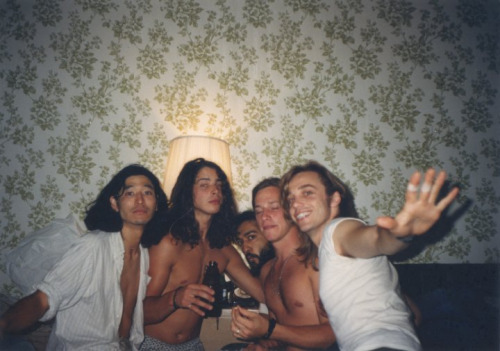
He might have been a great artiste, but Cornell was also a shrewd businessman, a father, and a husband who was discussing “plans for a vacation over Memorial Day” with his wife just before the show. He had a sense of humour, he collaborated with Timbaland.
While his family has stated that he had taken more than his recommended dose of an anxiety medication, Ativan, sources close to the investigation have told TMZ that there were fresh track marks on the singer’s arm when his body was found.
As I’ve stated before I’m not a doctor so I can’t tell you if Ativan (which side effects include Depression in high dosage) influenced Cornell’s decision, or if it was something else as TMZ is known to carry gossip news. But I can say that you can’t tell when a person with Depression (or any other related mental disorders) would do it. All you can do is give as much counselling and support to them and hope for the best.
They are like a ticking time bomb.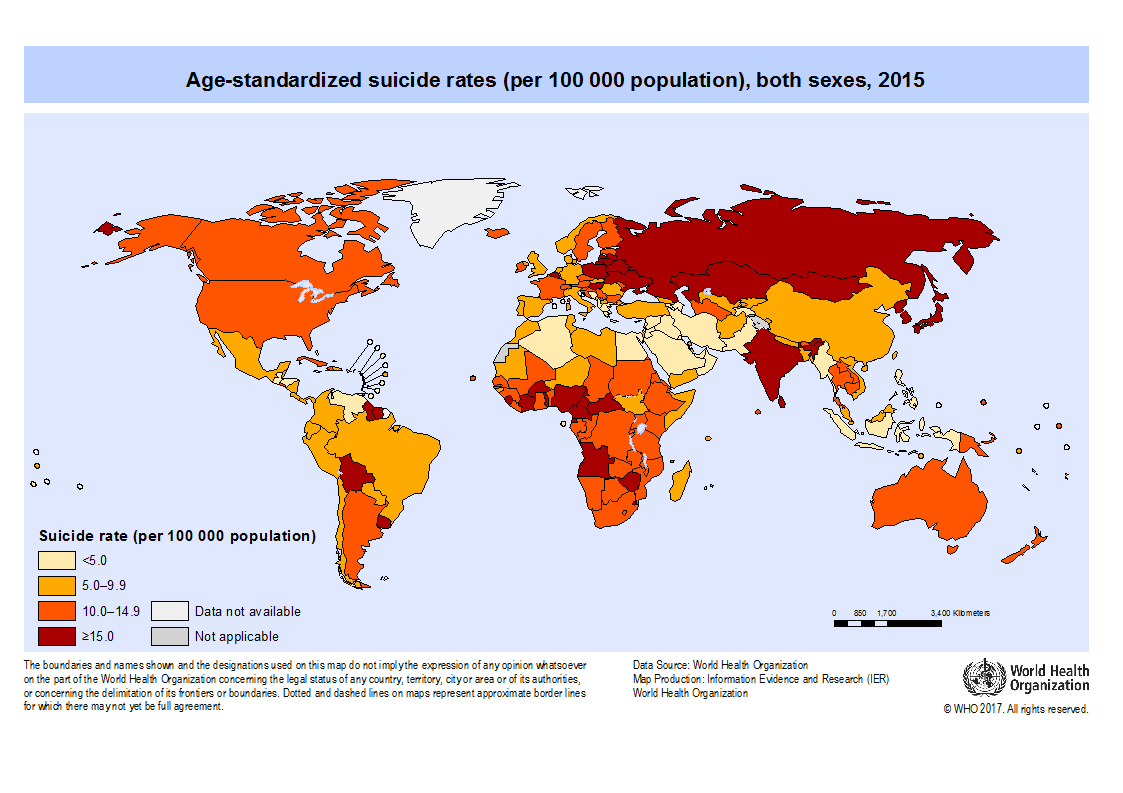 Depression affected 350 million people worldwide and was the leading cause of disability according to the World Health Organisation (WHO). Young males have the highest risk of Depression while middle-age men have the highest risk of developing severe Depression. In many urban communities, men are almost 90% more unlikely to seek professional help as compared to women.
Depression affected 350 million people worldwide and was the leading cause of disability according to the World Health Organisation (WHO). Young males have the highest risk of Depression while middle-age men have the highest risk of developing severe Depression. In many urban communities, men are almost 90% more unlikely to seek professional help as compared to women.
Although the whole world is affected, Depression seems to take hold in urban settings. According to the Malaysian Mental Health Association (MMHA), almost one-third of Malaysian adults suffer mental health problems. The National Health and Morbidity Survey 2015 showed that mental health problems among adults increased from 10.7 percent in 1996 to 29.2 percent in 2015.
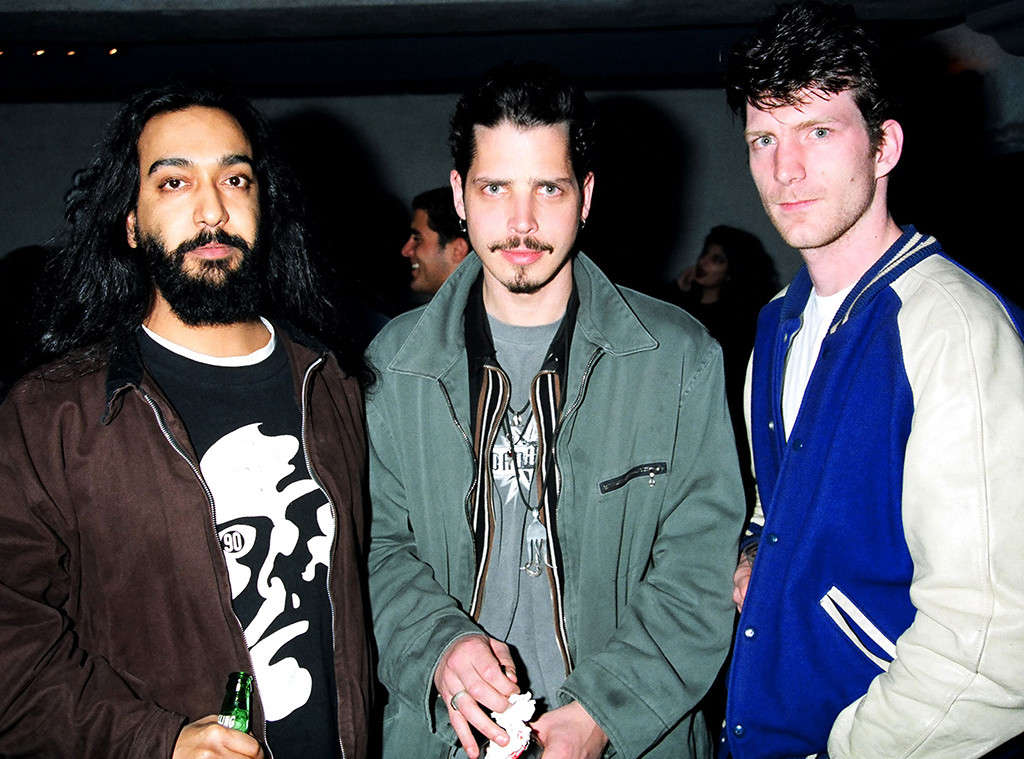
Even as recent as the last two years, there was a 16 percent spike in the number of calls received by Befrienders KL’s help hotline which currently receives about 60-70 calls daily, 27% of which related to suicidal intention. The organisation seeks to be a friend “to those who are suicidal, depressed or in despair.” Befrienders KL Publicity Director Ardy Ayadali said in an article by NST, “Although suicide is more common among older people in most parts of the world, research shows that suicide is the second leading cause of death for youth between the ages of 15 and 29 in Malaysia… the most common trigger for suicide among the callers was depression.” He added that sometimes people who posted about their suicidal intentions online received negative feedback and were accused of being attention seeker and sometimes netizens even challenged them to go through with it.
Whilst writing this article, I called Ardy for updated stats. It turns out Malaysian-Chinese youth are currently the most prone to suicide for the youth category. Chinese male youths are most likely to complete their suicide while female youths have a high rate of attempted suicide. The main group of endangered individuals are middle age to senior citizens from the Malaysian-Indian community.

Men have less of a support system for relating their emotions. In religious and traditional settings, a male has to be responsible for the well-being of the family and be the breadwinner. They are brought up in a society that teaches them to repress the feminine side of their emotions (“boys can’t cry”) and today, are bombarded with ludicrous institutions like Trumpism and Men’s Rights Groups that advocate chauvinist propaganda, further alienating men from evolving gender dynamics.
As a male-adult, if no one asks you if there’s a problem, you are not supposed to say there is one. Your insecurities and complaints are insights only valuable to your psychologist (if you can afford one) which is why many men place great importance on their relationships with their closest bros. It’s more than friendship, for many men it’s the only acceptable form of therapy.
Doesn’t matter your gender, it’s just hard when your best friend leaves or moves on with their life.
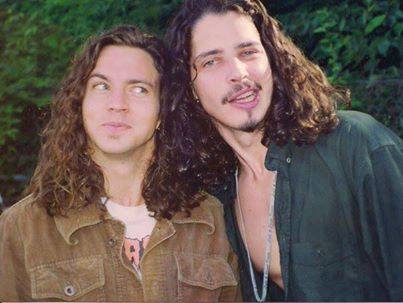
“Internalising” is also a very male-trait and according to Cornell, his father used to do it all the time. It’s easy to chant the mantra of ‘don’t worry, be happy’ but it’s harder to do when there are too many thoughts clouding your judgement, especially in the age of social media.
I have to admit right here, I get this too. I’ve been internalising shit ever since I was a kid, sometimes philosophical stuff, sometimes work, sometimes it’s just a long after-thought when a piece like this is done. Maybe writers are at risk of this epidemic too? It seems to be affecting a lot of people in this wide age group, from bankers to musicians.

Cornell made an observation once in an interview that in every city he has played in, there’s at least 2 guys from bands in a rehabilitation programme. In one study in the US, 85% of those with major depression were also diagnosed with generalised anxiety disorder and 35% had symptoms of panic disorder. Anxiety and depression are considered the twins of mood disorders.
Most performers (and a lot of musicians) suffer from this. They have the anxiety of putting on a good show and they have the disadvantage of being in an environment that is littered with both prescription and street drugs. You often hear of dentists or lawyers even farmers committing suicide. But no one ever thinks of the peace-loving musician as a potential suicide case.
In our phone conversation, Ardy said a lot of people in showbiz commit suicide and the world is left totally shocked. But it’s a known fact that a lot of celebrities “never show that part of their lives to the rest of the world. They’ve hidden that side of their lives from their fans.”
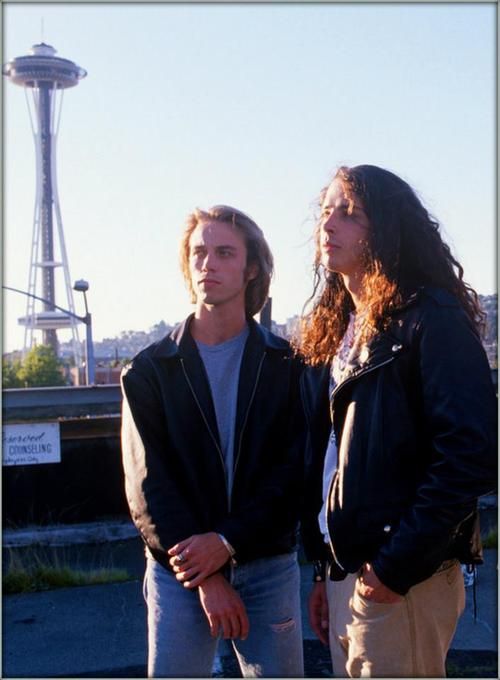
Because mental health is a relatively new field, there isn’t a magical pill you can swallow to get rid of your condition. All prescription medication does is help you manage your problems. If you have Depression, then you’ll have to take extra care of your mind. Some say meditation helps, others say quit eating meat and go on a vegan diet, but no one knows the real cause of clinical Depression. It could be our modern living and society’s pressures, personal traumatic experiences, a failure to achieve something and failure to deal with that disappointment, or a genuine chemical unbalance or problem with the brain’s nerves.
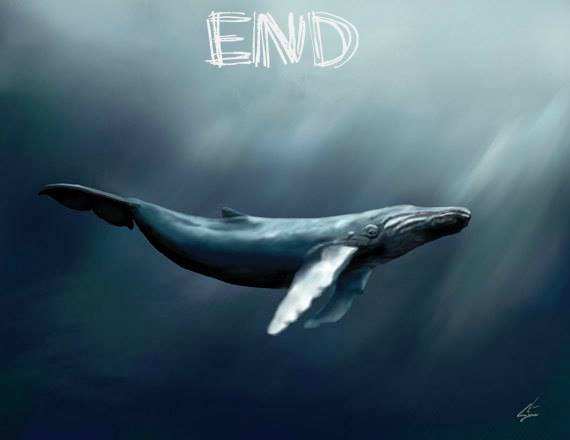
As if our genetics and environment are not big enough problems already, from Russia – the suicide capital of the world – comes a demented game that seems like a script from a Hollywood horror movie. I’m talking about the ‘Blue Whale’ game which has been link to a number of teenage suicides around the world. Latest reports suggest that the perverted social media challenge which targets troubled teens via closed- or private-social media groups and dares them to do a series of challenges ultimately leading to suicide, has arrived in the UK.
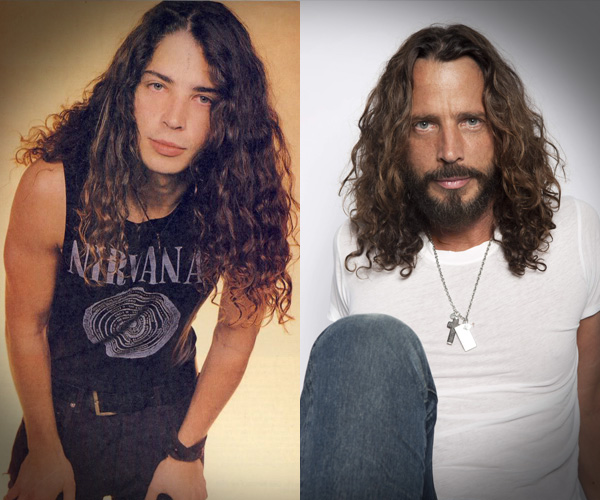
When AIDS was first discovered in 1983, there was a lot of stigma. People started saying all sorts of stupid things about the victims, not giving them a chance to tell their side of the story. Today, the public is more accepting of AIDS than it is of Depression. Not to mention, if someone is HIV positive, there’s a chance they got it by accident with transfused blood at a hospital or some other way which wasn’t particularly their fault. That thought is prevalent. And with modern medicine you can even outlive the effects of the virus.
Like AIDS in the ’80s, Depression has a lot of taboos and misinformation about it going around. But unlike AIDS, Depression did not receive the same PR value. It’s hard for the media to sell a fear that the public cannot physically see. Thus, it was largely ignored until recently when WHO released its worldwide statistics.
If you have it, especially in a Malaysian working environment, there’s a high chance you’ll be labelled as just moody and be forced to carry on. When your whole office is moving forward, it’s pretty hard to explain to the boss that you need time off. No one knows what you’re going through.
We could all be more supportive towards people diagnosed with Depression or people whom we suspect have this problem. And it’s not like they want you to treat them differently, like they’re special or something. We need to understand this problem together as technically everyone is at risk. As individuals, we need to find out the root cause of our Depression and its triggers to actually address the problem.
At his funeral, his former Audioslave bandmate Tom Morello said in his speech, “If you are depressed, if you are in trouble, if you feel like you might slip off the tightrope of life, in that moment you call the person sitting next to you right now, or you can call me… For Chris’ sake let’s make a commitment to looking after one another.”

All that comes to mind when we thinking of Depression as an illness are images of models cradling their heads like they’re having bad hangovers. We have to think of everyone as a potential carrier of this disease because that’s the only way to prepare ourselves. To quote Batman’s nemesis the Joker in Alan Moore’s The Killing Joke: “All it takes is one bad day to reduce the sanest man alive to lunacy. That’s how far the world is from where I am. Just one bad day.”
Nobody wants to kill themselves. This is why I refer to Cornell’s and my brother-in-law’s deaths as accidents. They didn’t want to do it. They fought against it till their last thoughts.
It’s just harder for them to get through the day.

For more info on Depression, please visit the Malaysian Mental Health Organisation. If you or someone you know someone might be suffering from Depression, like Tom Morello said, please talk to someone or call Befrienders KL at 03-79568144 or 03-79568145 anytime, 24 hours a day. You may also visit their centre at Jalan Templer if you’d like to meet them face-to-face.
Befrienders are based all over the world with several branches in Malaysia so that its workers can not only attend to calls but also meet their community at events. If you’d like to be a Befrienders volunteer, please visit their website.


 Get Audio+
Get Audio+ Hot FM
Hot FM Kool 101
Kool 101 Eight FM
Eight FM Fly FM
Fly FM Molek FM
Molek FM